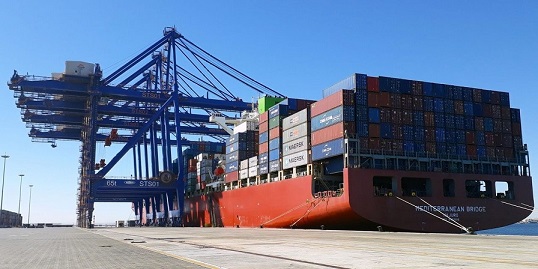
Africa needs to move to Single Currency to boost Intra-continental Trade

By Josef Kefas Sheehama.
It is beyond any doubt that the introduction of the African single market implies a very important step forward in the long process towards African integration, not only when seen from an economic point of view, but also politically.
Africa is highly diverse in culture, tradition, religion and ways of life. Although some sees diversity as the basis for unity, the continent’s diversity has been a source of conflict for many decades. This condition has diverted the attention of governments from development to security.
But a single currency for the entire Africa, if properly implemented, will improve trade by allowing specific countries to specialize at what they are good at, and exchange it for other goods that other countries in the alliance produce more efficiently. If implemented, countries across the region will be able to move and spend money across different countries without worrying about exchange rate costs. We will be able to see some of the most important effects of the Africa single currency, such as full price transparency across national borders, increased competition to the benefit of consumers, and the disappearance of the costs and inconvenience involved in changing money when travelling between African countries.
Furthermore, Africa could be quite suitable for a common currency if one looks at the nature of supply shocks that the region faces. The African economy, comprising 54 economies, in 2021 was projected around US$2.7 trillion in nominal terms, according to Africa the Statistics Times. Africa’s growth has been shaped by commodity prices, the continent has a third of the planet’s mineral resources, 10% of the world’s oil reserves and produces nearly 70% of the global diamond trade.
While this has clearly been good for growth in the past, the dependence on a few key commodities, and hence global price, has led to high levels of market uncertainty, especially around many of Africa’s currencies. Africa will remain an important producer of oil and natural gas, accounting for 10% of global oil and 9% of natural gas production in 2035.
The single currency will help to address the region’s monetary problems like the difficulty in converting some of its currencies. In this respect, a single currency is essential for consumers and investors to reap the full benefits of the Single Market for goods in services. To my mind, the Africa single currency will contribute positively to the necessary structural development process in all African countries.
A single currency, even if it is only for cross-border trade, will significantly increase intra-African trade; trade between one country and another; and trade between one region and another. These developments will indeed have important implications for the competitiveness and growth prospects of the African market.
The African Continental Free Trade Area Agreement is the first step to realize the single currency. This all-important multi-lateral agreement is viewed as the catalyst for long-term continental prosperity and integration. The debate for a single currency shows that the majority of the participants are highly knowledgeable on the role of a single currency for economic development that includes enhancing currency stability, reduction of financial risks, reduction of transaction costs, reduction of exchange rate fluctuations, enhancing price transparency and reduction of inflation that impact on trade within the region.
The ongoing process of reshaping the African economy from a group of small segmented national markets into an Africa-wide market is leading to greater efficiency and will bring important welfare gains for consumers and investors. But a single currency is a massive centralization of decisions at Africa Union level and a significant concentration of power in the hands of a small group of individuals, which may endanger one of the fundamental principles of the AU, the individual liberty.
Having a single currency, monetary policy and interest rates decided by someone else might seem a good idea but at some point politicians would like to have that power back in order to govern a developing country. It is very unfortunate that public attention is so narrowly focused on short-term developments. The public debate tends to neglect the long-term structural processes in all areas and especially in the financial markets.
The reduced barriers to cross-border trade and investment are likely to encourage more and more small and medium-sized companies which have traditionally been active only in the domestic market to enter the markets of the neighbouring countries. These microeconomic factors are likely to contribute to improved competition and resource allocation within the Africa market.
We need to trade among ourselves. So, the point is that we need a single currency. Movements of capital and goods go together. The importance of a single currency is highlighted in the African Union decision’s to consider it for the entire continent. This is because a single currency will aid the realisation of the objectives of AfCFTA. There is a need to put into place a mechanism of implementing the single currency integration in a gradual manner.
To that end, it requires plenty of energy, patience and political leadership. It will surely go hand in hand with various doubts, disagreements and setbacks. However, the objectives of the integration, the improvement of competitiveness and greater prosperity in Africa, as well as joint control over the domination of market forces in a world that is increasingly sensitive, are so important that efforts to foster this project should be intensified.
As a longer-term vision, one should see African integration as a step to better global co-operation and securing peaceful and balanced development. The single African market has a great need of a single currency to harmonise monetary policy across the continent and to promote trade, and consequently, prosperity but this is only possible with a single currency.










































